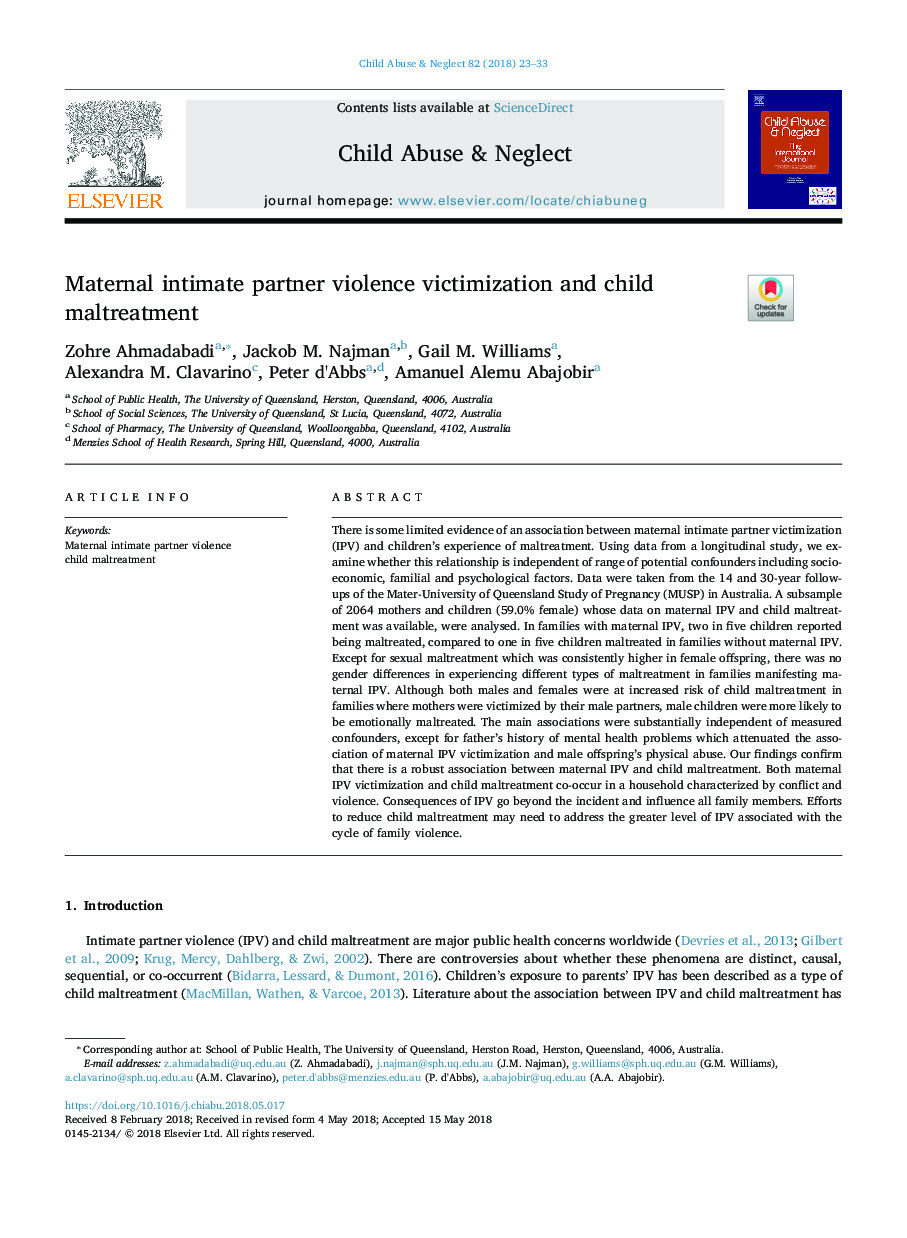| Article ID | Journal | Published Year | Pages | File Type |
|---|---|---|---|---|
| 6831777 | Child Abuse & Neglect | 2018 | 11 Pages |
Abstract
There is some limited evidence of an association between maternal intimate partner victimization (IPV) and children's experience of maltreatment. Using data from a longitudinal study, we examine whether this relationship is independent of range of potential confounders including socio-economic, familial and psychological factors. Data were taken from the 14 and 30-year follow-ups of the Mater-University of Queensland Study of Pregnancy (MUSP) in Australia. A subsample of 2064 mothers and children (59.0% female) whose data on maternal IPV and child maltreatment was available, were analysed. In families with maternal IPV, two in five children reported being maltreated, compared to one in five children maltreated in families without maternal IPV. Except for sexual maltreatment which was consistently higher in female offspring, there was no gender differences in experiencing different types of maltreatment in families manifesting maternal IPV. Although both males and females were at increased risk of child maltreatment in families where mothers were victimized by their male partners, male children were more likely to be emotionally maltreated. The main associations were substantially independent of measured confounders, except for father's history of mental health problems which attenuated the association of maternal IPV victimization and male offspring's physical abuse. Our findings confirm that there is a robust association between maternal IPV and child maltreatment. Both maternal IPV victimization and child maltreatment co-occur in a household characterized by conflict and violence. Consequences of IPV go beyond the incident and influence all family members. Efforts to reduce child maltreatment may need to address the greater level of IPV associated with the cycle of family violence.
Keywords
Related Topics
Health Sciences
Medicine and Dentistry
Perinatology, Pediatrics and Child Health
Authors
Zohre Ahmadabadi, Jackob M. Najman, Gail M. Williams, Alexandra M. Clavarino, Peter d'Abbs, Amanuel Alemu Abajobir,
